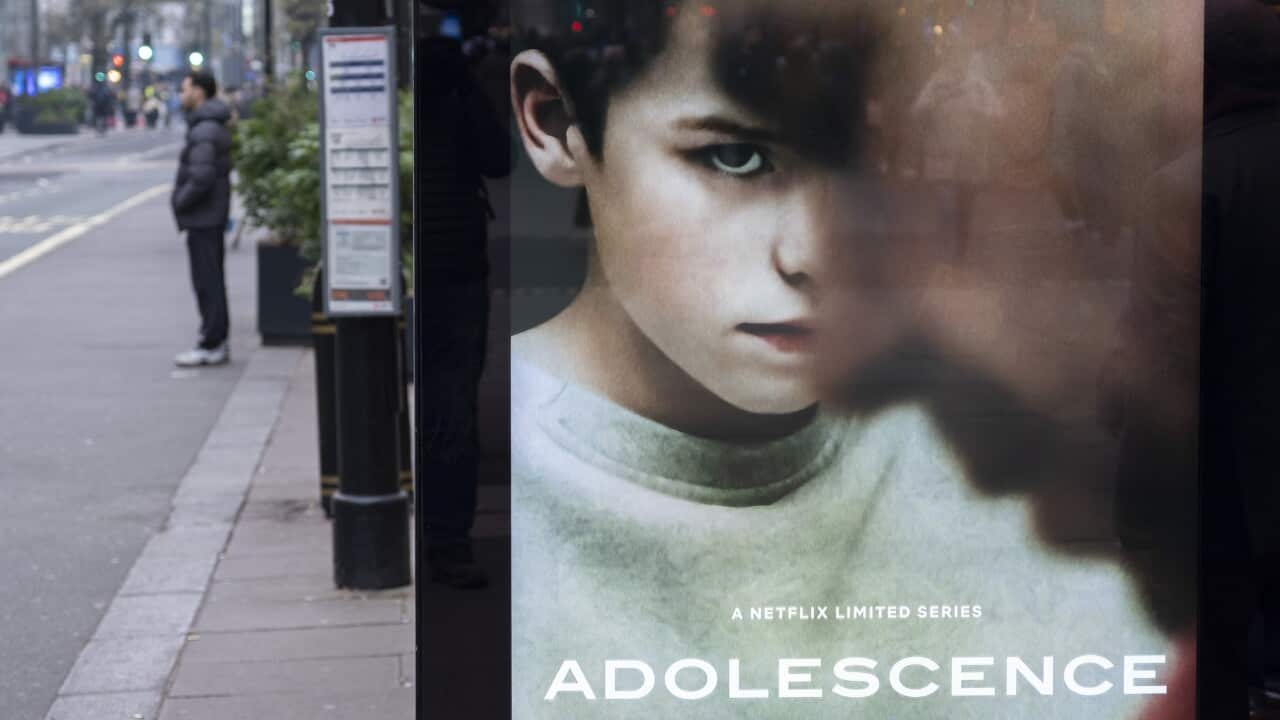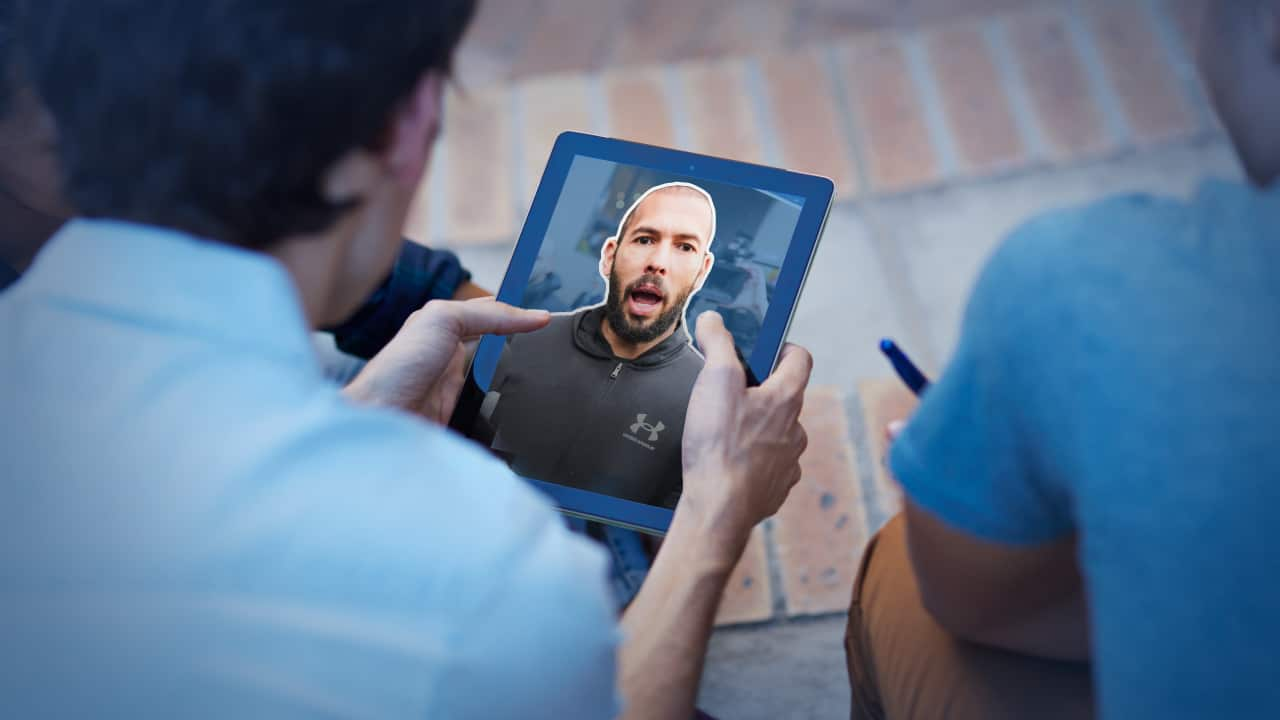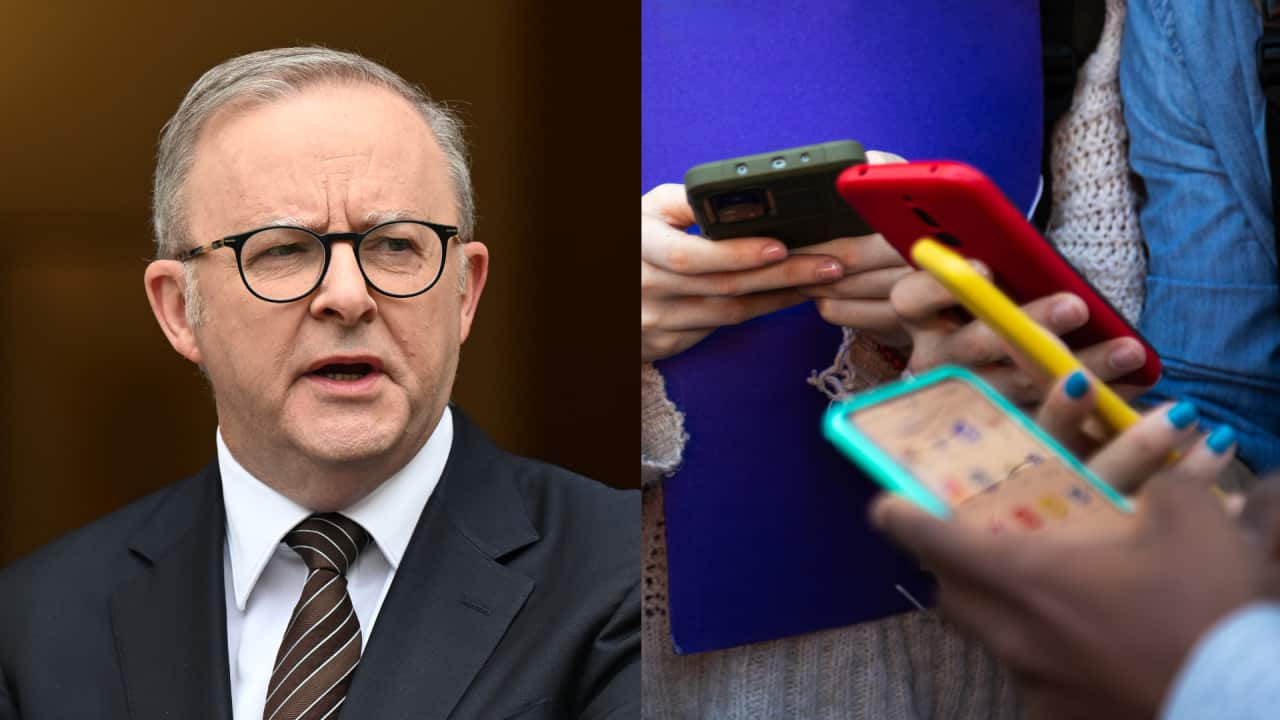This article contains references to gender based violence.
It's not unusual for a television show to go viral, but few have had as much immediate impact as Adolescence, the latest Netflix British crime drama.
The miniseries tells the story of a 13-year-old boy named Jamie Miller, who is accused of murdering a female classmate.
The show premiered on 13 March and became the most-watched limited series and most-watched UK title ever, with 66.3 million views in its first two weeks, according to Netflix.
It has sparked conversations among the public and politicians about its confronting subject matter, and the UK prime minister has backed a plan to show the series in schools across the country.
Here are five reasons everybody is talking about Adolescence.
Incel culture and the 'manosphere'
One of the key themes of the show is incel culture, the so-called 'manosphere', and toxic masculinity online.
'Incel' is short for involuntary celibate, and refers to men or teenage boys who consider themselves unable to attract women, which often leads to hostile views towards women and girls.
Incels often congregate in the online manosphere and 'red pill community', which includes blogs, forums, and social media movements that promote alpha males and misogyny and .
The red pill community refers to a group of people who believe society is biased against men. Figures like are prominent in these spaces.
In the lead-up to the murder in Adolescence, the main character Jamie and his friends engage in behaviour and language associated with incels and the so-called manosphere. Jamie is also shown to have made sexually explicit comments about female models on Instagram.
It is also revealed Jamie had been bullied at school and that his peers and family all had roles in his loneliness and the way he is drawn into toxic online spaces.
Social media and education
Closely linked to incel culture and the manosphere are the conversations the show has sparked about children's use of social media.
Labour MP Anneliese Midgley called on UK Prime Minister Keir Starmer to screen the series in UK schools. Starmer later announced he would support this.
"As a father, watching Adolescence with my teenage son and daughter hit home hard. We all need to be having these conversations more," he

UK Prime Minister Sir Keir Starmer met with the creators of the show Adolescence, along with charities and young people, to listen to experiences of children today and discuss the issues raised by the TV series. Source: AAP / Jack Taylor/PA
Starmer later hosted a meeting at 10 Downing Street to discuss dangerous content online.
The show's co-creator Jack Thorne has suggested the UK should introduce a smartphone ban in schools and a digital age of consent, similar to measures taken in Australia.
'Race swapping' and 'propaganda'
There has also been some criticism of the show, including conversations about 'race swapping' and 'anti-white propaganda'.
On 20 March, on social media platform X claimed Adolescence was based on the Southport murders, which were committed by a Black teenager. The post suggested the show's creators had swapped the murderer's race as a form of "anti-white propaganda".
The post was later shared by Elon Musk, and it had 4.8 million views at the time of writing.
We're not making a point about race with this. We are making a point about masculinity.Jack Thorne
Thorne was questioned about the claims on the News Agents podcast, and described the race-swap theory as "absurd".
"It’s absurd to say that this is only committed by Black boys. It’s absurd. It’s not true. And history shows a lot of cases of kids from all races committing these crimes," he said.
"We’re not making a point about race with this. We are making a point about masculinity. We’re trying to get inside a problem. We’re not saying this is one thing or another. We’re saying this is about boys."
Youth gender violence
At the centre of the show is a violent crime, with a boy stabbing a girl to death.
While the show is fictional, it has shone a light on the real issues of knife crime and youth violence. In 2024, by UK government agencies found the extent of youth violence was more far-reaching than many adults realised.
According to the report, children as young as 11 are carrying knives 'for protection' because they feel safe, with one in four either being a victim or perpetrator of violence.
Adolescence co-creator Stephen Graham has said he was inspired by real-life crimes occurring throughout the United Kingdom in recent years.
"I read an article in the newspaper, which was about a young boy who had stabbed a young girl to death. And ... I was stunned by what I was reading," Graham told US media outlet NPR.
"And then, about three or four months later, there was a story on the news ... about a young boy who had stabbed a young girl to death, and this incident was the opposite end to the country to the first incident that I'd read about."
Graham said the show aimed to address some of the factors contributing to youth violence — and who is responsible.
"There's a wonderful saying, which is, it takes a village to raise a child. And within that kind of complexity ... it's kind of like, maybe we're all accountable."
Cinematography and acting
In addition to its messaging, Adolescence has been critically acclaimed for its production, directing, cinematography, and actors' performances.
Each of the series' episodes, which range in length from 51-65 minutes, is filmed in one continuous shot. Unlike most productions, this means there are no cuts or retakes, and some moments were improvised.
Owen Cooper, who plays the lead character Jamie, has been praised for his acting performance in his first-ever on-screen role.
The show holds a 9 out of 10 rating on review aggregator website Rotten Tomatoes, and an 8.3 out of 10 on film and television database IMDB.
The Guardian gave the series five stars, calling it the "closest thing to TV perfection in decades", while Rolling Stone described it as "harrowing, heartbreaking, and a must-watch".
If you or someone you know is impacted by family and domestic violence, call 1800RESPECT on 1800 737 732, text 0458 737 732, or visit . In an emergency, call 000.





